Comprehensive List Of Assessment Mental Health Dos And Don'ts
페이지 정보
작성자 Jeannie 작성일 25-04-06 20:18 조회 63 댓글 0본문
Assessment Mental Health
Assessment of mental health is an extensive assessment of the patient's symptoms, thoughts and emotions. It can be done by means of questionnaires, interviews with a clinician or tests.
 When looking at assessment tools for the same disorder, a significant difference was found in the format of questions. The percentage of questions addressing emotion, cognitive, physical or trigger themes varied among assessment tools.
When looking at assessment tools for the same disorder, a significant difference was found in the format of questions. The percentage of questions addressing emotion, cognitive, physical or trigger themes varied among assessment tools.
Signs and symptoms
If you're being evaluated for mental health issues Your doctor will ask questions regarding the severity of your symptoms and how to get mental health assessment they impact your life. You'll also be asked about your family history, previous psychiatric disorders and your current medications. It's essential that your doctor knows about the current prescription and non-prescription medications, vitamins, herbs and other supplements, since they may cause side effects that mimic the symptoms of a mental illness.
Your doctor will examine your appearance and observe your behavior. They'll look at aspects like how you speak to yourself and whether you make eye contact, as well as your mood. They'll also assess how much energy you've got and how you interact with other people. They'll ask you about past problems, including thoughts of suicide or suicidal attempt. They'll ask if you have tried to manage your symptoms by yourself or with help from others.
You may be asked to undergo a physical exam to rule out any medical condition that could cause symptoms. This usually involves an examination of your blood and urine. The blood test is typically taken from your arm and could feel like an sting or pinch. The urine test is a simple urine test that involves putting your pee in the cup. If you're worried about these tests, it's best to speak to your therapist prior the appointment. They will make the process as painless as possible.
Mental status examination
A physician who can recognize and explain the mental state assessment of a patient will be in good shape to make the traditional psychiatric diagnosis that is within the structure of the Diagnostic and Statistical Manual of Mental Disorders, Fourth Edition Text Revision (DSM-IV). The MSE includes the observation of general appearance and behavior, as well as any peculiar or bizarre beliefs or perceptions, mood, and all aspects of cognition (eg, attention, orientation, memory, etc.).
A good MSE can provide valuable information. It can reveal a disheveled or unwashed appearance that is typical of mania or schizophrenia, or a self-delusion that is indicative of depression or bipolar disorder. It may also prompt responses to hypothetical situations such as "What do you think you would do if you found an unopened wallet on the street?" This can give insight into the patient's social judgment as well as thinking process.
MSEs may be conducted in a variety of ways, depending on the examiner's education and experience. For example, asking the patient to spell the word "world" forward and backward, or subtract serial sevens from 100 will test their the degree of attentiveness. Patients may be asked to draw a clock or house or even interlocking pentagons to evaluate spatial perception. This can also identify impersistence, persistence, micrographia and hemispatial naiveté. Other tests could be recommended on the basis of MSE results. These include laboratory tests to determine if medical conditions cause or are reversible and brain imaging (eg. computed tomography, magnetic resonance imaging) as well as an appointment with psychiatrist for an official assessment and consultation. A well-constructed MSE will provide crucial indications of a diagnosis and can aid in determining the best treatment. When conducting an MSE on a child, it's important to integrate the test into the context of an intake assessment. The results must be interpreted with caution within the framework of developmental.
Interviews
An interview is among the main components of the mental health assessment. The interview can be unstructured or structured, and could include questions on various topics. For example a mental health professional may ask about your family history and whether you have had any other injuries or illnesses. They might also inquire about the medications you take which includes nonprescription drugs such as teas and herbal supplements. They may want to know if you have been dealing with anxiety and what strategies you use.
Assessment of cognitive functioning, insight and judgment are as well part of the complete mental health assessment health assessment. The first is the ability to think clearly and make decisions. The second component is the ability of a person to comprehend reality, resolve issues, and understand the challenges. The last component, insight, refers to a person's understanding of their current situation and the reasons for their visit to a psychiatrist.
Affect and mood are crucial factors in the mental status examination. They involve direct questioning and observation of a person's body language, facial expressions, posture, and tone of voice. These indicators of mood can be used to determine if a patient is experiencing a depressive episode or anxiety attack.
Thought content can also be evaluated by evaluating mood and emotional state. This can be done through direct questions or observations of the patient's thoughts. Thought content can be used to determine if patients experience hallucinations that are auditory, tactile, visual or olfactory; delusions about their status or being feared by other people; compulsions and obsessions; and phobias. These symptoms can be assessed by using a variety of instruments, such as rating scales or questionnaires.
Tests
Tests can help mental health professionals evaluate a patient's cognitive functioning and personality traits. They can be used to establish the diagnosis or pinpoint areas of concern. These tools can be formal or casual and can include both verbal and written tests. Many therapists, in addition to traditional tests using paper and pen, use digital tools like Great Plains Health, a popular anxiety inventory.
These tests can reveal many aspects of an individual's thinking and behavior, including their ability to handle stress. These tests can also be used to evaluate the health of an individual's emotions and their capacity to resolve problems. When selecting an assessment tool, reliability, validity and sensitivity are the most crucial factors to consider.
The tests will differ according to the condition. A mini mental assessment state examination (MSE) can be used to assess a person's level consciousness and their response to questions about the past and present. Other tests include a cognitive test that identifies signs of mental illness, including hallucinations, delusions, obsessions, ritualistic behavior, compulsions, anxiety or thoughts of self-harm or suicide.
Mental health assessments are used to identify mental disorders like anorexia, depression, schizophrenia or bulimia. They can also be used to identify risk factors for these conditions, such as family history and environment. They can be difficult to interpret. For instance, a patient's test score can be affected by factors like age diet, exercise, or sleep. The kind of test, along with the number of questions, can also impact the results. Multiple choice tests, like, can be misleading and may not accurately reflect the capabilities of the test taker.
Checklists
Mental health assessments play a vital role in diagnosing and treating mental illnesses. They are typically conducted by mental health assessment online health professionals like psychiatrists or licensed professional counselors. The assessment process includes examining symptoms, conducting interviews, and completing tests. It is essential to utilize accurate and current tools for assessing mental health to ensure that patients receive the correct treatment in the timeframe they need it. If not, the patient could suffer from complications like delay in treatment or misdiagnosis.
Tests and checklists are commonly used tools to assess the health of a person's mind. They can be informal or formal, standardized or non-standardized, self-report or therapist-administered, and can be used at any point in the counseling process. In addition to psychological tests other methods of assessing the state of your mental health include laboratory and physical tests. They can be used to rule out physical conditions that may be causing the symptoms. These tests can also aid in determining the severity of the disorder.
Psychometric tests can include different kinds of questionnaires and checklists. They are used to evaluate a person's personality, cognitive and behavioral performance. These tests require training to administer and interpret. They can assist in identifying various psychological disorders, like anxiety and depression. They can be used to detect other disorders such as schizophrenia and bipolar disorder.
 The assessment process can be difficult, especially when dealing with a person who is at the risk of suicide. You need to be able to recognize the signs and symptoms of suicide to take preventative measures. Suicide is the most common cause of deaths, and it is vital to protect people from harm. A tool called the Mental Health Environment of Care Checklist has been proven to reduce the number of suicides occurring in psychiatric hospital units in the Veterans Affairs (VA) system.
The assessment process can be difficult, especially when dealing with a person who is at the risk of suicide. You need to be able to recognize the signs and symptoms of suicide to take preventative measures. Suicide is the most common cause of deaths, and it is vital to protect people from harm. A tool called the Mental Health Environment of Care Checklist has been proven to reduce the number of suicides occurring in psychiatric hospital units in the Veterans Affairs (VA) system.
Assessment of mental health is an extensive assessment of the patient's symptoms, thoughts and emotions. It can be done by means of questionnaires, interviews with a clinician or tests.
 When looking at assessment tools for the same disorder, a significant difference was found in the format of questions. The percentage of questions addressing emotion, cognitive, physical or trigger themes varied among assessment tools.
When looking at assessment tools for the same disorder, a significant difference was found in the format of questions. The percentage of questions addressing emotion, cognitive, physical or trigger themes varied among assessment tools.Signs and symptoms
If you're being evaluated for mental health issues Your doctor will ask questions regarding the severity of your symptoms and how to get mental health assessment they impact your life. You'll also be asked about your family history, previous psychiatric disorders and your current medications. It's essential that your doctor knows about the current prescription and non-prescription medications, vitamins, herbs and other supplements, since they may cause side effects that mimic the symptoms of a mental illness.
Your doctor will examine your appearance and observe your behavior. They'll look at aspects like how you speak to yourself and whether you make eye contact, as well as your mood. They'll also assess how much energy you've got and how you interact with other people. They'll ask you about past problems, including thoughts of suicide or suicidal attempt. They'll ask if you have tried to manage your symptoms by yourself or with help from others.
You may be asked to undergo a physical exam to rule out any medical condition that could cause symptoms. This usually involves an examination of your blood and urine. The blood test is typically taken from your arm and could feel like an sting or pinch. The urine test is a simple urine test that involves putting your pee in the cup. If you're worried about these tests, it's best to speak to your therapist prior the appointment. They will make the process as painless as possible.
Mental status examination
A physician who can recognize and explain the mental state assessment of a patient will be in good shape to make the traditional psychiatric diagnosis that is within the structure of the Diagnostic and Statistical Manual of Mental Disorders, Fourth Edition Text Revision (DSM-IV). The MSE includes the observation of general appearance and behavior, as well as any peculiar or bizarre beliefs or perceptions, mood, and all aspects of cognition (eg, attention, orientation, memory, etc.).
A good MSE can provide valuable information. It can reveal a disheveled or unwashed appearance that is typical of mania or schizophrenia, or a self-delusion that is indicative of depression or bipolar disorder. It may also prompt responses to hypothetical situations such as "What do you think you would do if you found an unopened wallet on the street?" This can give insight into the patient's social judgment as well as thinking process.
MSEs may be conducted in a variety of ways, depending on the examiner's education and experience. For example, asking the patient to spell the word "world" forward and backward, or subtract serial sevens from 100 will test their the degree of attentiveness. Patients may be asked to draw a clock or house or even interlocking pentagons to evaluate spatial perception. This can also identify impersistence, persistence, micrographia and hemispatial naiveté. Other tests could be recommended on the basis of MSE results. These include laboratory tests to determine if medical conditions cause or are reversible and brain imaging (eg. computed tomography, magnetic resonance imaging) as well as an appointment with psychiatrist for an official assessment and consultation. A well-constructed MSE will provide crucial indications of a diagnosis and can aid in determining the best treatment. When conducting an MSE on a child, it's important to integrate the test into the context of an intake assessment. The results must be interpreted with caution within the framework of developmental.
Interviews
An interview is among the main components of the mental health assessment. The interview can be unstructured or structured, and could include questions on various topics. For example a mental health professional may ask about your family history and whether you have had any other injuries or illnesses. They might also inquire about the medications you take which includes nonprescription drugs such as teas and herbal supplements. They may want to know if you have been dealing with anxiety and what strategies you use.
Assessment of cognitive functioning, insight and judgment are as well part of the complete mental health assessment health assessment. The first is the ability to think clearly and make decisions. The second component is the ability of a person to comprehend reality, resolve issues, and understand the challenges. The last component, insight, refers to a person's understanding of their current situation and the reasons for their visit to a psychiatrist.
Affect and mood are crucial factors in the mental status examination. They involve direct questioning and observation of a person's body language, facial expressions, posture, and tone of voice. These indicators of mood can be used to determine if a patient is experiencing a depressive episode or anxiety attack.
Thought content can also be evaluated by evaluating mood and emotional state. This can be done through direct questions or observations of the patient's thoughts. Thought content can be used to determine if patients experience hallucinations that are auditory, tactile, visual or olfactory; delusions about their status or being feared by other people; compulsions and obsessions; and phobias. These symptoms can be assessed by using a variety of instruments, such as rating scales or questionnaires.
Tests
Tests can help mental health professionals evaluate a patient's cognitive functioning and personality traits. They can be used to establish the diagnosis or pinpoint areas of concern. These tools can be formal or casual and can include both verbal and written tests. Many therapists, in addition to traditional tests using paper and pen, use digital tools like Great Plains Health, a popular anxiety inventory.
These tests can reveal many aspects of an individual's thinking and behavior, including their ability to handle stress. These tests can also be used to evaluate the health of an individual's emotions and their capacity to resolve problems. When selecting an assessment tool, reliability, validity and sensitivity are the most crucial factors to consider.
The tests will differ according to the condition. A mini mental assessment state examination (MSE) can be used to assess a person's level consciousness and their response to questions about the past and present. Other tests include a cognitive test that identifies signs of mental illness, including hallucinations, delusions, obsessions, ritualistic behavior, compulsions, anxiety or thoughts of self-harm or suicide.
Mental health assessments are used to identify mental disorders like anorexia, depression, schizophrenia or bulimia. They can also be used to identify risk factors for these conditions, such as family history and environment. They can be difficult to interpret. For instance, a patient's test score can be affected by factors like age diet, exercise, or sleep. The kind of test, along with the number of questions, can also impact the results. Multiple choice tests, like, can be misleading and may not accurately reflect the capabilities of the test taker.
Checklists
Mental health assessments play a vital role in diagnosing and treating mental illnesses. They are typically conducted by mental health assessment online health professionals like psychiatrists or licensed professional counselors. The assessment process includes examining symptoms, conducting interviews, and completing tests. It is essential to utilize accurate and current tools for assessing mental health to ensure that patients receive the correct treatment in the timeframe they need it. If not, the patient could suffer from complications like delay in treatment or misdiagnosis.
Tests and checklists are commonly used tools to assess the health of a person's mind. They can be informal or formal, standardized or non-standardized, self-report or therapist-administered, and can be used at any point in the counseling process. In addition to psychological tests other methods of assessing the state of your mental health include laboratory and physical tests. They can be used to rule out physical conditions that may be causing the symptoms. These tests can also aid in determining the severity of the disorder.
Psychometric tests can include different kinds of questionnaires and checklists. They are used to evaluate a person's personality, cognitive and behavioral performance. These tests require training to administer and interpret. They can assist in identifying various psychological disorders, like anxiety and depression. They can be used to detect other disorders such as schizophrenia and bipolar disorder.
 The assessment process can be difficult, especially when dealing with a person who is at the risk of suicide. You need to be able to recognize the signs and symptoms of suicide to take preventative measures. Suicide is the most common cause of deaths, and it is vital to protect people from harm. A tool called the Mental Health Environment of Care Checklist has been proven to reduce the number of suicides occurring in psychiatric hospital units in the Veterans Affairs (VA) system.
The assessment process can be difficult, especially when dealing with a person who is at the risk of suicide. You need to be able to recognize the signs and symptoms of suicide to take preventative measures. Suicide is the most common cause of deaths, and it is vital to protect people from harm. A tool called the Mental Health Environment of Care Checklist has been proven to reduce the number of suicides occurring in psychiatric hospital units in the Veterans Affairs (VA) system.








